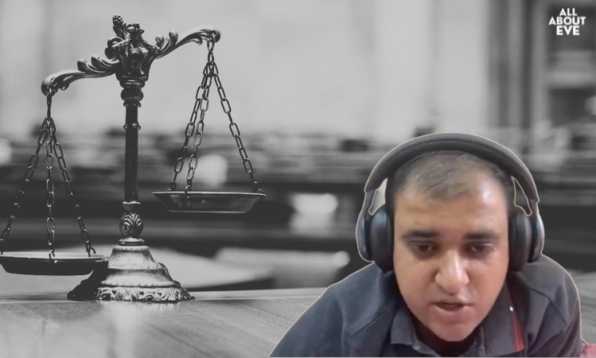What happens when one parent is systematically erased from a child’s life? Not due to abuse or neglect, but because the other parent decides to cut them out. Parental Alienation Syndrome (PAS) isn’t a new phenomenon, but Atul Subhash’s suicide case has brought it into sharp focus once again.
Atul Subhash, a tech professional from Bengaluru, tragically died by suicide on Monday. In his suicide note, he grieved about being unable to see his son for three years. “I don’t even remember your face now until I see pictures of you when you were one year old,” Subhash wrote.
This devastating case highlights not only the emotional toll of PAS but also systemic failings. The judiciary failed to provide Subhash with recourse, forcing us to ask difficult questions about parental alienation. To understand this complex issue and its impact on families, we spoke with Saachi Arora, a clinical psychologist.
What does PAS mean?

Parental Alienation Syndrome (PAS) is a term introduced by child psychiatrist Richard Gardner in 1985 to describe signs and symptoms he believed were shown by children who have been alienated from one parent through manipulation by the other parent.
Parental Alienation Syndrome often arises in high-conflict custody battles. As Saachi Arora explains, “PAS occurs when a child loses contact with one parent due to the manipulations of the other parent during or after separation or divorce. This can happen both intentionally, where one parent deliberately influences the child against the other, and unintentionally, where the child feels isolated due to a lack of connection.”
The alienating parent may portray the other as harmful or unloving, block communication, or create situations where the child feels forced to choose sides. While these actions can be subtle, their effects on the parent-child relationship are profound.
“The child’s sense of security and their ability to form a balanced perspective are severely impacted in such cases,” Saachi adds.
How does PAS manifest?

Alienating parents often engage in tactics such as emotional manipulation or spreading misinformation, isolating the child from the other parent. They may even distort the child’s memories to paint the alienated parent in a negative light. In some instances, they create temptations to distract the child, like planning outings or treats during scheduled visits with the other parent.
Children experiencing PAS may exhibit anxiety, agitation, fear, or anger. “They feel abandoned by the alienated parent, even when this is not the reality,” explains Saachi. Over time, they internalise these negative perceptions, often due to manipulative comments or enforced communication barriers.
“This creates long-term issues such as low self-esteem, difficulty establishing relationships, and emotional confusion in the child,” she adds.
The far-reaching impact of PAS
The damage caused by PAS is not confined to the child; it reverberates across the entire family. Alienated parents often struggle with mental health challenges like anxiety and depression, feeling erased from their child’s life.
“They can also resort to unhealthy coping mechanisms, such as alcohol use or passivity, feeling as though their efforts are futile. They might think, ‘What’s the point of working so hard when everything falls apart anyway?’ and start leading a passive life,” Saachi explains.

On the other hand, alienating parents may act out of a need to regain control. “When their marriage is falling apart, and everything seems out of their hands, they exercise control over the child’s relationship with the other parent,” she notes. Unfortunately, this often strains their relationship with the child in later years when the child begins to understand the manipulation.
Children are especially vulnerable during the ages of 9 to 13, when they’re beginning to grasp relationship dynamics but lack the autonomy to make decisions. “They may exhibit aggression, lower academic performance, and difficulty forming friendships,” says Saachi.
PAS also exposes broader societal failures, highlighting inadequacies in both legal and mental health systems. Court decisions often overlook the emotional needs of children and the alienated parent.
“The lack of acknowledgment of PAS as a formal disorder in diagnostic manuals like the DSM-5 complicates its recognition and intervention,” notes Saachi. While PAS may fall under categories like child psychological abuse or post-traumatic stress disorder (PTSD), its nuanced nature remains largely under-addressed.
Finding a way through
So, what can parents do? Saachi advises, “The best way to rebuild your relationship with the child (both as an alienated and alienating parent) is to reconnect. As the alienated parent, start providing a safe space for your child to share their grievances, and the alienating parent should let the child choose for themselves.”
For alienated parents dealing with intense emotions, Saachi offers some practical advice. “Identify your triggers and try to distance yourself from what upsets you. If that’s not possible, pay attention to your self-talk. If you’re telling yourself, ‘I’m a bad parent,’ work to challenge that thought. You’re not a bad parent; you just can’t control everything.”
She also emphasises the importance of social connections. “Go out and meet friends, old or new. Give life another chance,” she encourages.
Finally, therapy can be an invaluable tool. “Family therapy can help rebuild trust and foster communication,” Saachi concludes.
At its core, PAS underscores the importance of healthy relationships, communication, and systemic change. Let Atul Subhash’s suicide case serve as a reminder of why we must advocate for those silenced by alienation and fight for solutions that prioritise the well-being of families.
If you want to reach out to Saachi for professional help, you can contact her here.
Related: Get The Help You Need: 5 Platforms That Help You Find Psychologists And Mental Health Resources

 Web Stories
Web Stories













